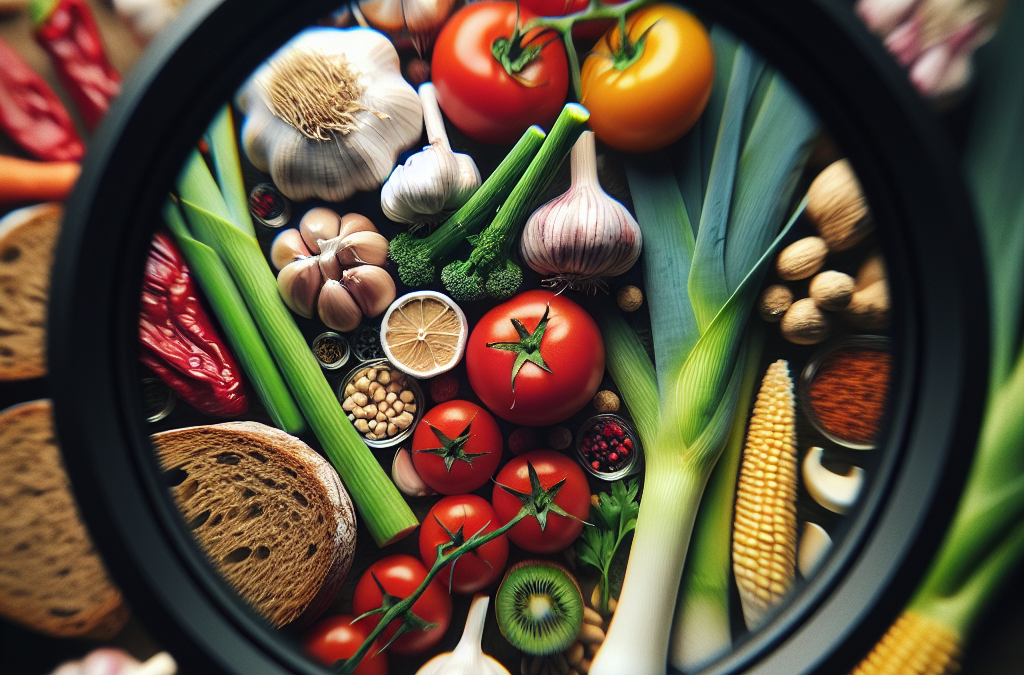Understanding Prebiotics: What Are They?
Defining Prebiotics
So, let’s dive in! Prebiotics are those special little fibers that our digestive system loves. I mean, think of them as food for the good bacteria that hang out in your gut. They’re not the same as probiotics, which are the actual live bacteria — prebiotics help the probiotics thrive. You need both for a happy tummy!
When I learned that prebiotics come from the foods we eat, it was like a light bulb went off. Foods rich in fiber and resistant starch, like bananas, onions, and whole grains, are fantastic sources. I remembered that time I tried a fancy restaurant with a delicious barley salad, and it was packed with prebiotic goodness!
It’s pretty amazing how something as simple as what we eat can impact our gut health. I encourage everyone to pay attention to these foods; they can lead to lasting wellness, and all it takes is a small dietary shift to get started.
The Benefits of Prebiotics
Boosting Gut Health
Now, let’s chat about why prebiotics are such a big deal! The first major perk is gut health. We all know the saying, “happy gut, happy life”, right? Incorporating prebiotics into your diet makes a world of difference. They help to balance the gut microbiome, which can lead to fewer digestive problems.
When I added more prebiotic foods to my routine, I noticed a change. Less bloating and a smoother digestion — it was like my stomach finally took a breath of fresh air! Trust me, your gut will thank you.
Plus, a healthy gut contributes to a better immune system. The lining of your gut plays a huge role in protecting you from illness, and prebiotics help maintain that protective barrier. It’s like having a reliable shield against the common cold!
Food Sources of Prebiotics
Top Prebiotic Foods to Incorporate
Let’s talk about what to eat! There are tons of prebiotic foods out there that are easy to incorporate into your meals. Garlic is one of my favorites—not only does it add flavor, but it’s also loaded with inulin, a type of prebiotic fiber.
Also, consider adding more artichokes and chickpeas into your diet. I love tossing chickpeas into salads for added crunch and health benefits. Seriously, you won’t even realize you’re doing something good for your gut!
And let’s not forget about oats. Starting my day with a hearty bowl of oatmeal sprinkled with some berries and nuts is not just a satisfying breakfast; it’s a powerhouse of fibers to support those good bacteria!
Integrating Prebiotics into Your Daily Routine
Simple Steps to Add Prebiotics
Getting prebiotics into your daily routine doesn’t have to be a hassle. One simple step is swapping out refined grains for whole grains. I started doing this, and it was a game-changer! Whole grain bread and pasta not only taste great but they’re also better for your gut.
Get an Amazing Discount on the Best Certified Organic Whole Food Supplement!
Another trick is to add sliced bananas or berries on your morning yogurt. It’s a delicious way to boost your breakfast and pack in those prebiotics while enjoying your meal. Trust me, it’s a match made in foodie heaven!
And don’t forget about snacking! Instead of reaching for highly processed snacks, try munching on some raw veggies. Carrots and celery are super easy and can be paired with hummus for a tasty, prebiotic-rich snack. You’ll feel great, and your gut will too!
Addressing Misconceptions about Prebiotics
Common Misunderstandings
Let’s clear the air about some common misconceptions. One big myth I’ve come across is that prebiotics are only for people with digestive issues. Nope! Everyone can benefit from incorporating them into their diet. It’s all about maintaining that happy gut for all!
Another misunderstanding is that prebiotic foods are boring and tasteless. I’ve had my share of bland food that didn’t sit well with my taste buds. But it doesn’t have to be this way! Prebiotic-rich foods can be incredibly flavorful. Use herbs and spices to jazz things up!
Lastly, some people believe that you can just take supplements and skip the food altogether. While prebiotic supplements exist, they’re no substitute for whole foods. There’s something special about food that supplements just can’t replicate. So, embrace real food whenever you can!
Frequently Asked Questions
What are prebiotic foods?
Prebiotic foods are rich in fiber and help promote the growth of healthy bacteria in the gut. Examples include garlic, onions, bananas, and whole grains.
How do I know if I’m getting enough prebiotics?
If you’re eating a good variety of fruits, vegetables, and whole grains regularly, you’re likely getting enough prebiotics. Pay attention to how your digestion feels.
Can prebiotics help with weight management?
Yes, they can! Prebiotics may help you feel full longer, which can lead to less snacking on unhealthy foods.
Are there any side effects to consuming prebiotics?
Some people might experience gas or bloating if they consume a lot of prebiotic-rich foods too quickly. It’s best to start small and gradually increase your intake.
Can I take prebiotic supplements instead of food?
While supplements can help, they’re no replacement for a healthy diet packed with whole foods. Real foods provide extra nutrients that supplements might lack.





